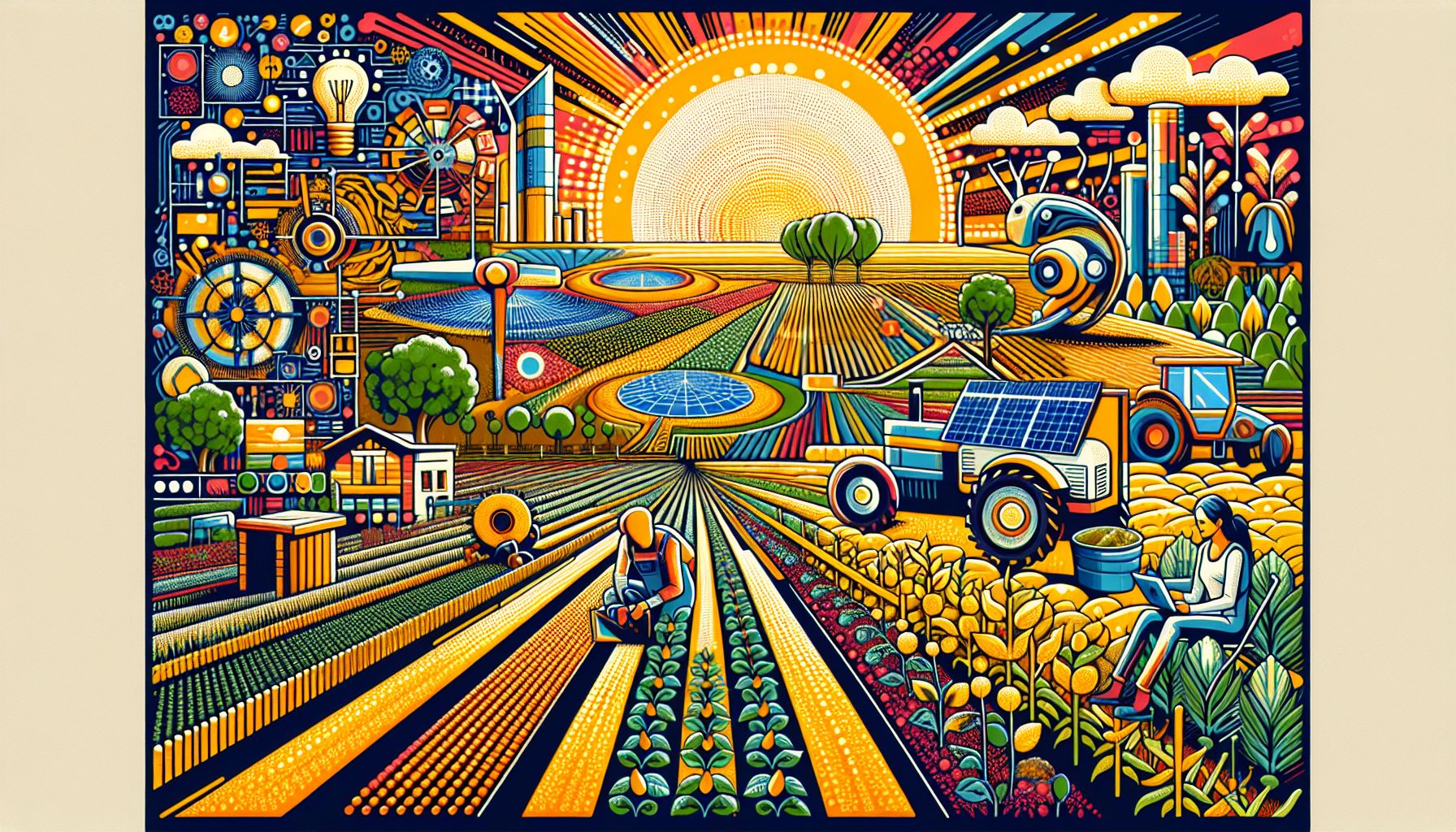AI Revolutionizes Agriculture: Boosting Sustainability and Efficiency

Netherlands, Monday, 1 July 2024.
Artificial intelligence is transforming farming practices, from precision agriculture to pest control. AI-powered tools like AGRIVI Ed provide personalized advice to farmers globally, democratizing access to technology and promoting sustainable food production.
Democratizing Access to Technology
One of the key players in this technological revolution is AGRIVI, an agtech company based in Croatia. They have developed AGRIVI Ed, an agronomic AI advisor that leverages generative AI to provide personalized advice to smallholder and medium-sized farmers around the world. This AI tool is available 24/7 in over 50 languages, ensuring that farmers can access critical information in their native language. Matija Zulj, the founder and CEO of AGRIVI, emphasizes that their AI solution bridges the gap between data-driven solutions and farmers, making advanced agricultural practices accessible to those who need them most.
Addressing Key Agricultural Challenges
Farming today faces numerous challenges, including climate change, pests, inflation, rising costs, and labor shortages. Only 2% of farms globally are digitalized, which leaves the majority of small and medium-sized farms without access to the data-driven practices that can help mitigate these issues. AGRIVI Ed provides expert advice on a variety of critical farming aspects, such as seed selection, crop protection, fertilizers, regenerative practices, crop insurance, and financing options. This level of support helps farmers make informed decisions that can enhance productivity and sustainability.
Transforming Farming Practices
Beyond just personalized advice, AI is transforming traditional farming practices. According to the National Institute of Food and Agriculture, AI is revolutionizing the agricultural industry by enabling precision farming, which optimizes resource utilization, enhances crop yields, and monitors crop health in real-time. AI-driven systems can analyze data from satellite imagery, weather forecasts, and soil sensors to provide precise recommendations for crop management, helping farmers optimize resources, reduce waste, and increase productivity.
Innovations in Pest Control and Supply Chain Optimization
Generative AI also plays a crucial role in pest control and supply chain optimization. AI algorithms can predict pest and disease outbreaks, allowing farmers to implement integrated pest management strategies and reduce reliance on chemical pesticides. Additionally, AI-powered drones equipped with multispectral sensors can assess plant health, detect pest infestations, and identify nutrient deficiencies in real-time. By optimizing supply chains, AI can analyze data on production, market demand, transportation, and storage conditions, ensuring that agricultural products are delivered efficiently and sustainably.
Future Prospects and Ethical Considerations
The future of AI in agriculture holds immense potential for advancements in autonomous farming equipment, AI-driven crop breeding, and climate-resilient farming practices. Researchers from the University of Bonn, for example, have developed software that uses drone photos to visualize the future development of plants, helping farmers make informed decisions about crop management. However, ethical considerations such as data privacy, access to technology, and the impact on rural communities must be addressed to ensure that AI benefits all stakeholders in the agricultural value chain. Continued innovation and collaboration between technologists, farmers, and policymakers will be crucial in driving the future development of AI in agriculture.
Bronnen
- www.agtechnavigator.com
- www.agribusinessreview.com
- www.agribusinessreview.com
- www.feedstuffs.com
- www.linkedin.com
- www.lf.uni-bonn.de

